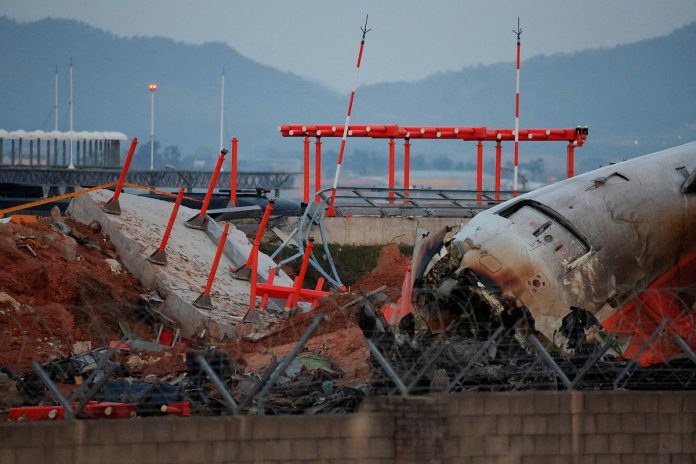SEOUL: Investigators probing the deadly Jeju Air crash in December have uncovered evidence that pilots shut down the wrong engine after a bird strike, a source familiar with the inquiry revealed. The cockpit voice recorder, flight data, and physical switch positions indicate the left engine was turned off instead of the more severely damaged right engine during emergency procedures.
“The investigation team has clear evidence and backup data, so its finding will not change,“ the source told Reuters anonymously, as officials have yet to release an official report. Government examinations confirmed no pre-existing defects in the engines before the accident.
The December 29 crash of the Boeing 737-800 at Muan Airport killed 179 of the 181 passengers and crew, marking South Korea’s deadliest aviation disaster. Briefings to victims’ families suggested the right engine sustained worse damage from the bird strike, yet pilots may have mistakenly disabled the left engine.
South Korea’s Aviation and Railway Accident Investigation Board (ARAIB) has not commented, while Boeing and engine manufacturer CFM International deferred to the ongoing probe. Jeju Air stated it is cooperating fully with authorities.
Families of the victims opposed the premature release of findings, arguing the report unfairly blamed pilots without examining other factors. Lawyers representing them noted concerns over the runway’s embankment, which may have worsened the crash impact.
The Jeju Air pilots’ union accused investigators of rushing to conclusions, insisting no proof exists that keeping the left engine operational would have averted the tragedy. “Air accidents are complex incidents,“ the union stated, urging scrutiny of organisational accountability.
A preliminary report in January confirmed bird remains in both engines but did not detail the extent of damage. The final report is expected within a year, per international protocols. – Reuters








